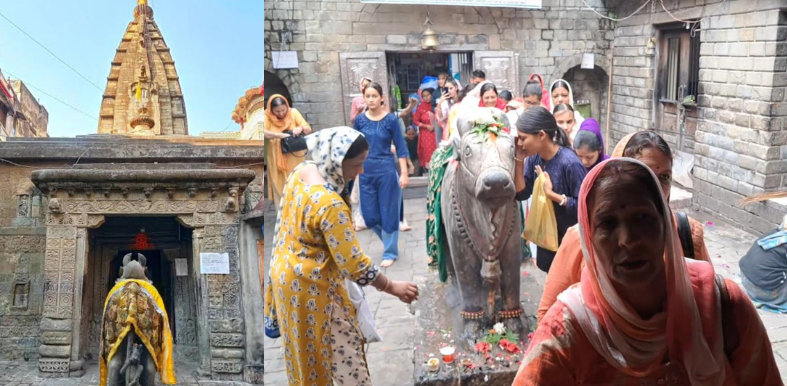TNR News Network
Dharamshala— In a thought-provoking address titled “The Cultural Soul of Aryabhoomi Inspiring the Liberation of Mansarovar,” Dr. Amrik Singh Thakur, Director of the Centre for Tibet Studies at the Central University of Himachal Pradesh, explored the deep spiritual and cultural ties between Bharat and Tibet, and the evolving role of the Rashtriya Swayamsevak Sangh (RSS) in shaping national consciousness.
Dr. Thakur emphasized that when thoughts evolve into actions, and actions into culture, the nation itself becomes a vessel of liberation—not just for Mansarovar, but for all humanity. Reflecting on his personal journey, he described himself as a “microcosm of the Rashtriya Swayamsevak Sangh,” underscoring the organization’s growing societal expectations and its role as a generational bridge.
Quoting Sarsanghchalak Ji’s assertion that “the time is favourable,” Dr. Thakur called for active societal participation in the Sangh’s transformative mission, warning that passive observation could delay meaningful change.
The address highlighted the millennia-old religio-cultural continuum between Bharat and Tibet, with Kailash-Mansarovar serving as a sacred link. Dr. Thakur cited Dolma Gyari, Security Minister of the Tibetan Government in Exile, who described the liberation of Mansarovar as a shared dream of India and Tibet, inspired by the RSS’s legacy of self-realization and cultural unity.
Gyari’s remarks, as presented by Dr. Thakur, framed Mansarovar not merely as a geographical site but as a philosophical symbol of freedom—from fear, oppression, and spiritual disconnection. She described the RSS as a “living discipline” that empowers individuals and communities alike.
As the RSS approaches its centenary, Dr. Thakur urged introspection and reaffirmed the significance of its ideological framework, particularly the “Panch Parivartan”—a fivefold transformation encompassing self-awareness, family enlightenment, social harmony, civic responsibility, and environmental stewardship. These pillars, he said, are essential for Bharat’s moral and cultural renaissance.
Dr. Thakur concluded by asserting that the liberation of Mansarovar represents not only the freedom of Tibet but the awakening of humanity’s collective consciousness. In this vision, the RSS emerges as a unifying force—connecting individuals to society, society to culture, and culture to the nation. As Bharat strides toward global intellectual leadership, its cultural diplomacy, rooted in unity and spiritual depth, offers a beacon for the world.





